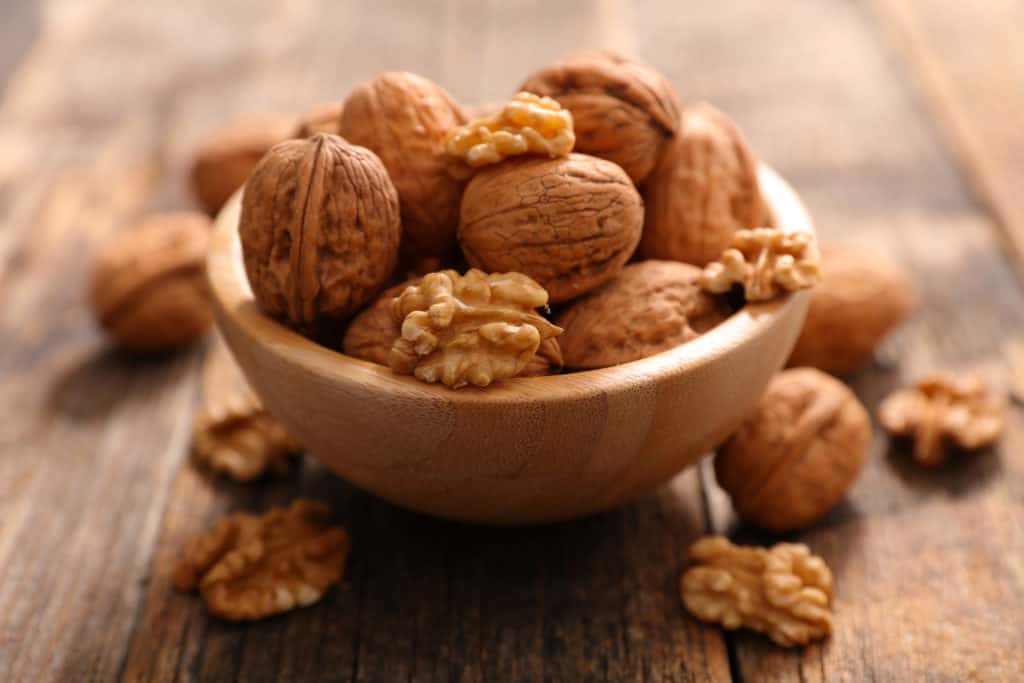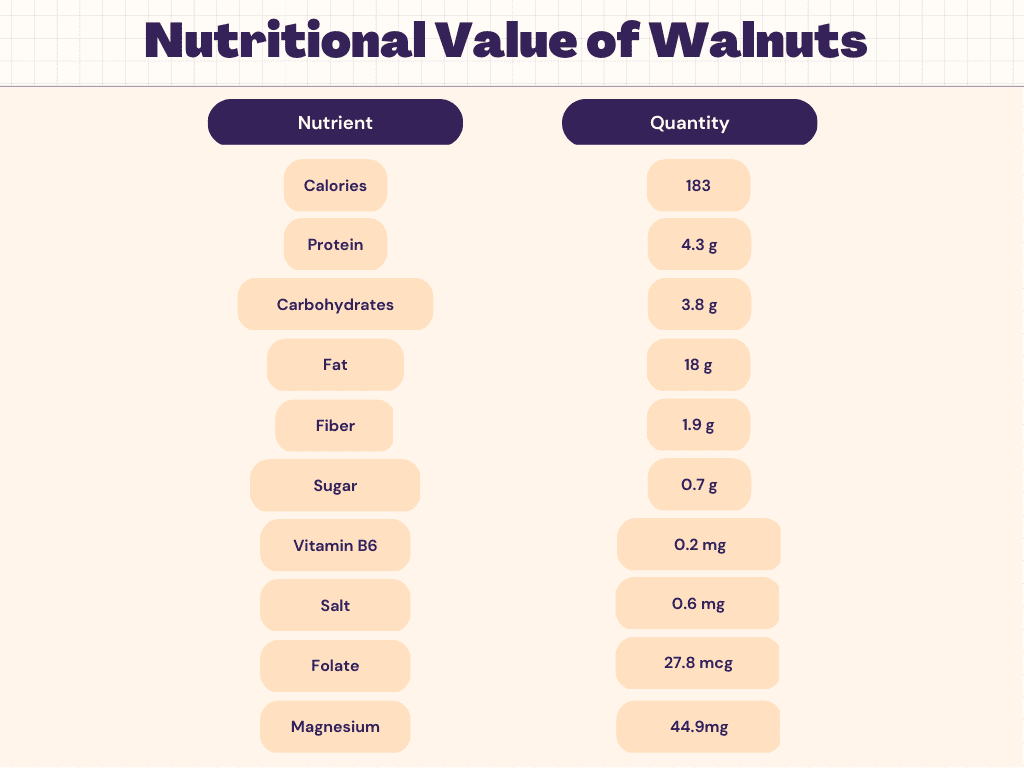Walnuts can be used in a wide range of recipes, from sweet baked products to savory dishes, as a substantial, satisfying snack and addition. Walnuts are a fantastic source of polyunsaturated fat, a beneficial type of fat that helps improve heart health among other things.
Nutritional Value of Walnut
Nutritional Facts of Walnut
Carbs
Only 3.8 grams of carbohydrates are included in one serving of walnuts. There are very few amounts of starch (0.017g) and naturally occurring sugar (0.7g). Healthy fiber makes up the majority of the carbohydrate in walnuts (1.9g).
Fats
When you eat one serving of the nuts, you’ll take in 18 grams of fat. The majority of the fat (13.4g) is polyunsaturated, but there is also some monounsaturated fat (2.5g) and very little saturated fat (1.7g).
Protein
A good source of protein increase is found in walnuts. One serving contains more than 4 grams.
Health Benefits Of Walnut
- Helps with Weight Management – Walnuts are a wise food choice for weight loss because they are a rich source of protein and fiber. Those who are overweight or obese can achieve and maintain a healthier weight by consuming meals high in fiber. Check our Weight Loss Plans.
- Maintains blood sugar – Moreover, fiber-rich foods can aid in supplying the body with a constant flow of glucose, minimizing significant blood sugar rises.
- Maintains brain health – walnuts may have positive implications for maintaining brain health as we age.
- Prevents Cancer – According to one published study, walnut consumption of 75 grams per day enhanced vascular and prostatic biomarkers in males at risk for prostate cancer.
Vitamins & Minerals in Walnut
Half of your daily needs for manganese and copper can be met by eating walnuts. Moreover, they are a good supplier of phosphorus and magnesium. Little levels of iron, calcium, zinc, potassium, and selenium are also present in nuts. Vitamin B6, folate, and thiamin are among the vitamins included in walnuts.
The Bottom Line
Walnuts are nutrient-rich foods that contain omega-3 fatty acids, antioxidants, and other substances that may help prevent cancer, heart disease, and brain aging. Walnuts can be added to salads, pastas, breakfast cereals, soups, and baked products in addition to being consumed on their own as a snack.
FAQs
How many Walnuts can I eat in a day?
Despite how healthy walnuts are, you don’t need to consume a lot of them to benefit. Moreover, excessive use has been linked to allergic reactions, gastrointestinal discomfort, and high-calorie intake, which results in weight gain. Establish a daily walnut intake goal of 7–10 as a routine.
Should I eat Walnuts before or after exercise?
Nuts should ideally be avoided before and during exercise. Instead, consume nuts as part of your post-workout meal or snack and on days off.
What are the benefits of Walnuts?
- Helps with weight management
- Maintains blood sugar level
- Maintains brain health
- Prevents prostrate cancer
What is the best time to eat Walnuts?
For maximum health benefits, consume walnuts first thing in the morning on an empty stomach.










